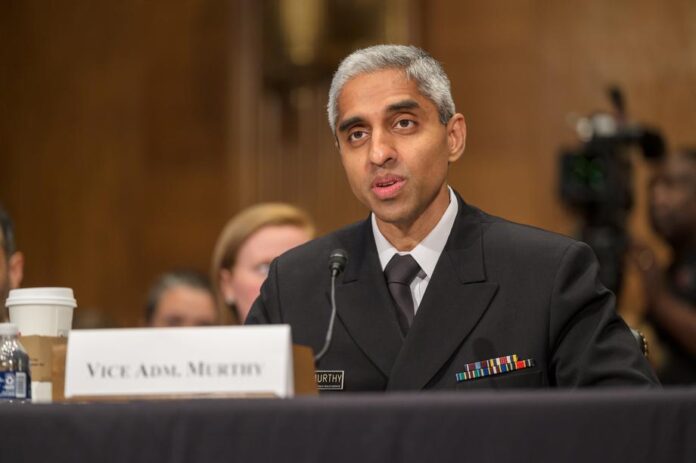U.S. Surgeon General Dr. Vivek Murthy testified before a Senate Health, Labor and Pensions Panel on Thursday expressing his fears surrounding youth mental health, which he said is “the defining public health issue of our time.”
During his testimony, he explained how social media risks exposure to potentially harmful content and is a key driver of loneliness and isolation. As a result, more youth than ever are experiencing feelings of depression and self-harm.
His remarks come at a time when student mental health has reached unprecedented levels. For instance, a recent survey from the Centers for Disease Control and Prevention revealed that nearly 1 in 3 teenage girls have seriously considered attempting suicide. Furthermore, 20% of girls said they were bullied on social media compared to 11% of boys.
“The bottom line is our kids can’t afford to wait longer for us to address the youth mental health crisis,” Murthy said. “We have to expand our efforts to ensure every child has access to high quality, affordable, culturally competent mental health care.”
He also said he would be in favor of adding a warning label on social media platforms cautioning the danger they pose to young children, similar to those found on cigarettes.
“I do think it would be appropriate… if Congress is willing to provide the legislative or regulatory authority to put that label on, then I’d certainly be willing to partner,” he said in response to questions from Republican Sen. Roger Marshall during the hearing.
In May, Murthy issued a mental health advisory calling for extended research to better understand the scope of social media’s impact on youth mental health.
“We are in the middle of a national youth mental health crisis, and I am concerned that social media is an important driver of that crisis—one that we must urgently address,” he said in a statement.
More from DA: Pride Month kicks off with protests—some violent—in several school districts
His advisory came soon after a wave of school districts announced they were suing social media companies with hopes of driving state and federal reform. But until then, school staff should know the warning signs and when to intervene. According to the Substance Abuse and Mental Health Services Administration, there are 11 behaviors educators should be on the lookout for:
- Feelings of sadness or withdrawal for more than two weeks.
- Attempts of self-harm, or evident plans to do so.
- Sudden overwhelming fear.
- Involvement in many fights or a desire to hurt others.
- Severe out-of-control behavior.
- Not eating, throwing up or extreme efforts to lose weight.
- Intense worries or fears that get in the way of one’s daily activities.
- Difficulty concentrating or staying still which may put the student in physical danger or creates issues in the classroom.
- Consistent drug or alcohol use.
- Severe mood swings.
- Drastic changes in one’s behavior or personality.










